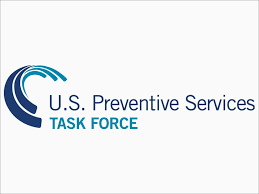
28 Jan USPSTF: Statement on Pediatric Screening for Speech and Language Delay and Disorders
MedicalResearch.com Interview with:

Dr. Li Li
Li Li, M.D., Ph.D., M.P.H
Walter M. Seward Professor
Chair of Family Medicine
Director of population health
University of Virginia School of Medicine
Editor-in-chief of The BMJ Family Medicine
Dr. Li joined the U.S. Preventive Services Task Force in January 2021
MedicalResearch.com: What is the background for this study? What are the main findings?
Response: Speech and language delays and disorders can be challenging for children and their families and can lead to difficulties with reading and writing as children grow up.
The Task Force looked at the evidence on screening for speech and language delays and, unfortunately, there is not enough evidence to tell us whether or not it is helpful to screen all children 5 years old and younger for speech and language delays and disorders.
MedicalResearch.com: What should readers take away from your report?
Response: While caring for children with speech and language delays and disorders is incredibly important, we don’t have enough evidence to recommend for or against universal screening. We are calling for more research on this important topic. In the meantime, families and caregivers who have concerns about their child should reach out to a health professional to ensure they get the care they need.
Also, clinicians should use their judgment when deciding whether or not to screen kids who are not showing any signs or symptoms.
MedicalResearch.com: What recommendations do you have for future research as a results of this study?
Response: The Task Force is calling for more evidence, particularly among children who are more likely to experience speech and language delays, such as Black and Latino children, as well as children in households with low incomes. We are also calling for more research on outcomes after screening and subsequent treatment, such as academic performance changes, social and emotional health, or child and family well-being.
MedicalResearch.com: Is there anything else you would like to add? Any disclosures?
Response: Importantly, this recommendation is not for children who show signs or symptoms or whose caregivers or healthcare professionals raise concerns about speech and language; these children should be evaluated and if needed, receive treatment. Children are more likely to be diagnosed with speech and language delays and disorders if they are male, have a family history, were born prematurely, or their parents have a low education level. Healthcare professionals should use their clinical judgment to decide whether and when it would be beneficial to screen young patients who don’t show any signs or symptoms of a speech or language delay or disorder.
Citations:
1)US Preventive Services Task Force. Screening for Speech and Language Delay and Disorders in Children: US Preventive Services Task Force Recommendation Statement. JAMA. 2024;331(4):329–334. doi:10.1001/jama.2023.26952
https://jamanetwork.com/journals/jama/article-abstract/2814124
2) Patient page:
Jin J. Screening for Speech and Language Problems in Young Children. JAMA. 2024;331(4):368. doi:10.1001/jama.2023.27630
https://jamanetwork.com/journals/jama/fullarticle/2814130
3) Editorial:
Recommendations for Speech and Language Screenings
Marisha L. Speights, PhD, CCC-SLP; Maranda K. Jones, BA; Megan Y. Roberts, PhD, CCC-SLP
https://jamanetwork.com/journals/jama/fullarticle/2814159
4) Editorial:
Kaiser AP, Chow JC, Baumingham JE. Untying the Gordian Knot of Early Language Screening and Improved Developmental Outcomes. JAMA Netw Open. 2024;7(1):e2354529. doi:10.1001/jamanetworkopen.2023.54529
https://jamanetwork.com/journals/jamanetworkopen/fullarticle/2814217
The information on MedicalResearch.com is provided for educational purposes only, and is in no way intended to diagnose, cure, or treat any medical or other condition.
Some links may be sponsored. Products are not endorsed.
Always seek the advice of your physician or other qualified health and ask your doctor any questions you may have regarding a medical condition. In addition to all other limitations and disclaimers in this agreement, service provider and its third party providers disclaim any liability or loss in connection with the content provided on this website.
Last Updated on January 28, 2024 by Marie Benz MD FAAD
